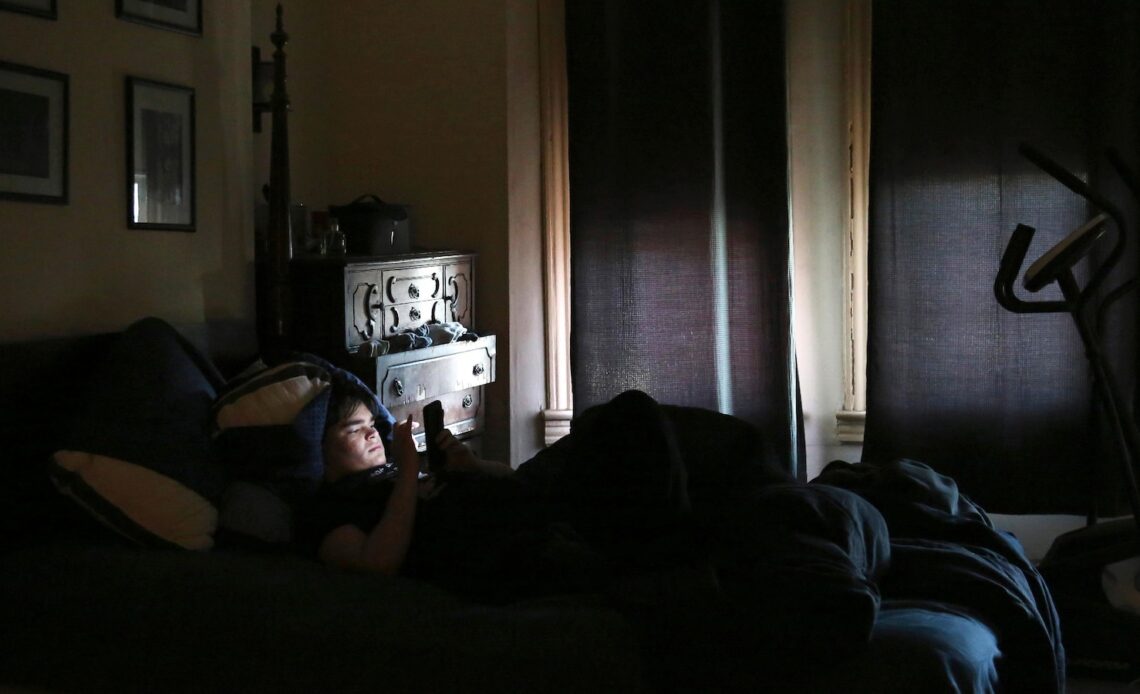Like many of us, Jessica Peoples has heard the warnings about excessive screen time at night. Still, she estimates spending 30 to 60 minutes on her phone before going to sleep, mostly scrolling through social media.
“Recently, I’ve been trying to limit the amount,” says Peoples, a discrimination investigator with the state of New Jersey. “I do notice that how much time I spend affects how long it takes to fall asleep.”
Over half of Americans spend time on their phones within an hour of going to sleep, according to a survey by the National Sleep Foundation. That’s the very latest we should shut off devices, experts say.
The brain needs to wind down long before bedtime to get the restorative deep sleep that helps the body function, said Melissa Milanak, an associate professor at Medical University of South Carolina specializing in sleep health.
“You wouldn’t take a casserole out of the oven and stick it right in the fridge. It needs to cool down,” Milanak said. “Our brains need to do that too.”
Upending your bedtime routine may not be easy, but insufficient sleep has long been linked to anxiety, obesity and other negative outcomes. Research shows smartphones are particularly disruptive to the circadian clock that regulates sleep and other hormones.
“There are a million and one ways screens create problems with sleep,” said Lisa Strauss, a licensed psychologist specializing in cognitive behavioral treatment of sleep disorders.
The brain, she said, processes electric light — not just a smartphone’s much-maligned blue light — as sunshine. That suppresses melatonin production, delaying deep sleep. Even very little bright-light exposure in bed has an impact.
Of course, doomscrolling through the news, checking emails or being tempted by ever more tailored videos on social media has its own consequences.
So-called “technostress” amps you up — possibly even triggering the brain’s flight or flight response. And algorithms designed to be engaging compel many social media users to scroll longer than they intended.
“Now it’s 30 minutes later, when you wanted to watch a couple videos and fall asleep,” Milanak said.
Though much of the scientific research on online media focuses on adolescents and young adults, Strauss said most of her clients struggling with insomnia are middle-aged. “People go down these rabbit holes of videos, and more and more people are getting hooked,” she said.
The issue is not just curtailing phone use in…
Click Here to Read the Full Original Article at ABC News: Health…

